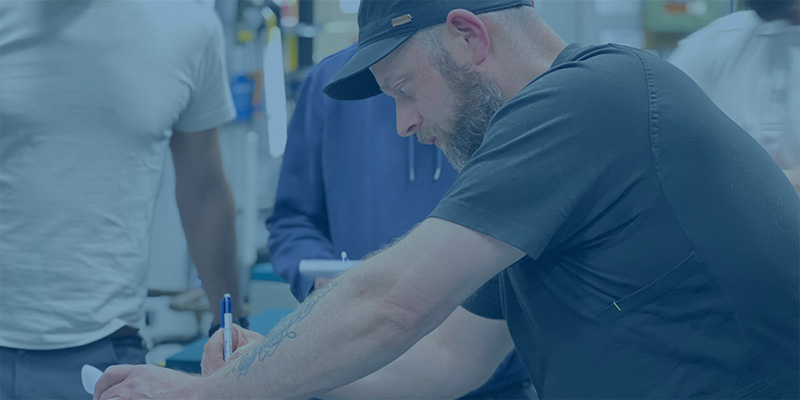
COCATA1 Changeover to Catering Appliances Training Course
Logic4training's Changeover to Catering Appliances course (COCATA1) is for experienced operatives who wish to undertake the commissioning, servicing, repair and breakdown of commercial catering appliances.
This module is normally undertaken as part of the Domestic to Commercial Catering Changeover Course.
COCATA1 Changeover to Catering Appliances Course Details
This training course is for experienced operatives who wish to undertake commission, service, repair and breakdown of commercial catering appliances.
The COCATA1 module is normally undertaken as part of the Domestic to Commercial Catering Changeover Course.
This course includes training and assessment on COCATA1 – Commercial catering appliances.
COCATA1 includes the following:
- COMCAT1 – Boilers burners, open/solid top ranges, hotplates and bain maries
- COMCAT3 – Deep fat and pressure fryers, griddles and grills
Training is not a mandatory prerequisite to assessment.
Please note: This module is normally undertaken as part of the Domestic to Commercial Catering Changeover Course. There would be an additional charge of £65 plus VAT if this course is taken as an individual module. Please contact our customer service team on 0208 845 7222 to discuss this further.
Operatives must hold the Core Domestic Gas Safety (CCN1) qualification and either Central Heating Boilers/Hot Water Heaters (CENWAT) or Cookers (CKR1).
The Commercial Catering Gas Safety Training Manual can be purchased via our online shop.
FAQs
The COCATA1 Changeover to Catering Appliances course is designed for qualified domestic gas engineers who wish to work on commercial catering appliances. It provides the necessary training and assessment to safely install, commission, service, and repair commercial catering equipment, such as commercial cookers, fryers, ovens, and ancillary appliances. This course is ideal for engineers looking to expand their scope of work into the commercial catering sector, provided they already hold relevant domestic gas qualifications like CENWAT and CKR1.
The COCATA1 course covers a wide range of commercial catering appliances, including:
- Commercial-sized cooking ranges (COMCAT1)
- Deep fat fryers (COMCAT3)
- Stockpot stoves, hotplates, warming ovens, bain maries, hot cupboards
- Combination ovens (forced convection), direct and semi-indirect ovens
- Boiling pans, bulk liquid and jacketed urns
- Gas-fired dishwashers, heated rinsing sinks, tandoors, pizza ovens, heated woks, and other ancillary equipment.
Completing the COMCAT1 course significantly enhances your career prospects as a gas engineer by enabling you to legally commission, service, repair, and maintain commercial catering appliances such as boiler burners, open or solid top ranges, hot plates, and bain maries. This qualification broadens your scope of work beyond domestic gas appliances, opening up new employment opportunities within the commercial catering sector, which is in high demand across restaurants, hotels, schools, and other food service environments. Employers value engineers with commercial catering competencies, and holding COMCAT1 demonstrates your commitment to professional development and compliance with industry standards, boosting your employability and potential earnings.
Yes, you can take the COMCAT1 module as an individual course. While it is typically undertaken as part of the Core Catering Gas Safety Package or the Catering Gas Safety Changeover Package, Logic4training allows candidates to enrol on COMCAT1 as a standalone module. There is an additional charge of £65 plus VAT for taking the course individually. If you are interested in this option, it is recommended to contact Logic4training’s customer service team directly to discuss your requirements and confirm eligibility.
The COMCAT1 qualification, like all ACS (Accredited Certification Scheme) gas safety modules, must be renewed every five years. Reassessment can be taken up to six months before the expiry date, allowing you to maintain continuous certification without losing any validity time. This renewal cycle ensures that engineers stay up to date with the latest safety regulations and industry best practices, maintaining their legal eligibility to work on commercial catering appliances.

The Easier Way To Run Your
Heating & Plumbing Company
